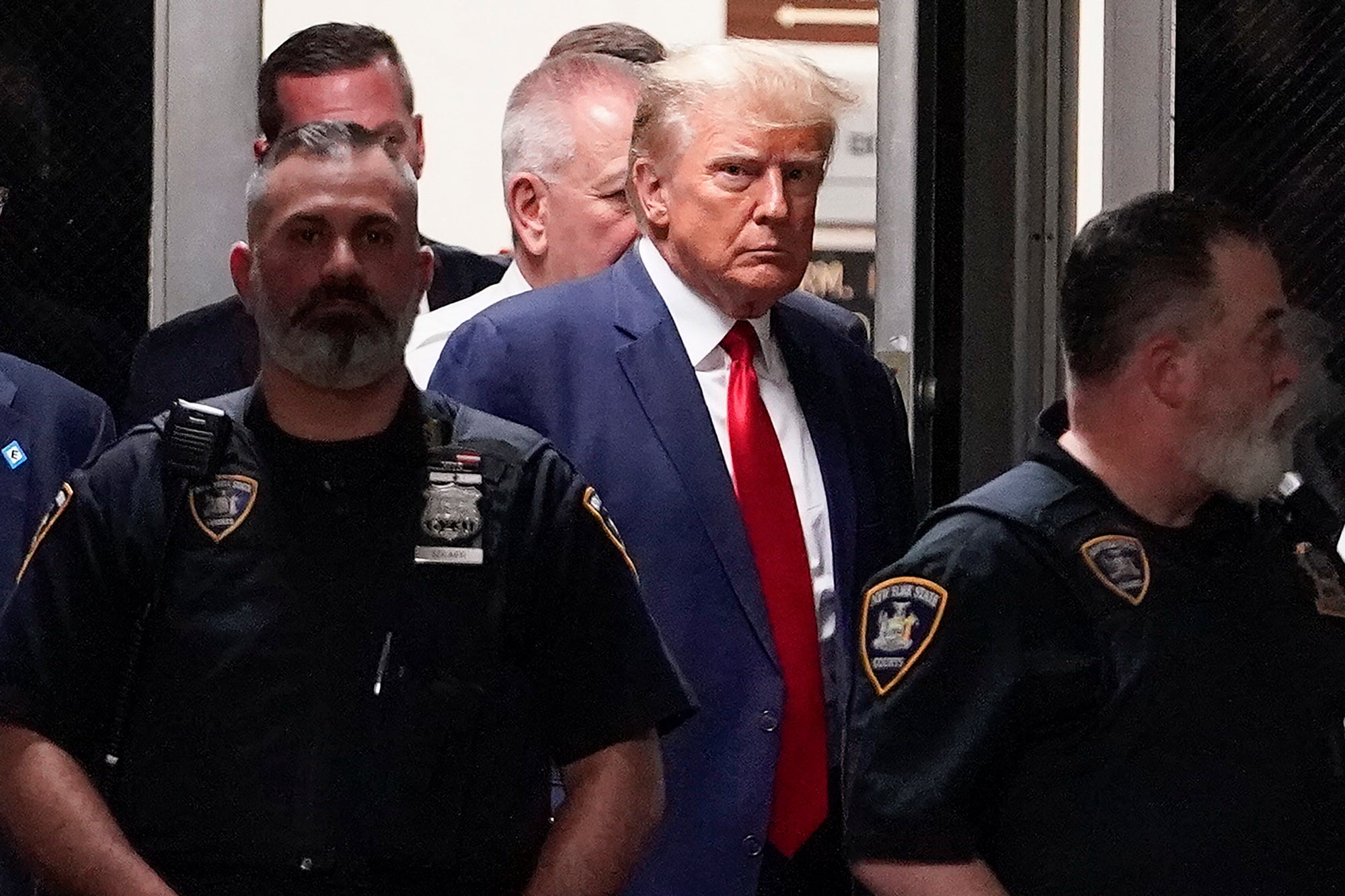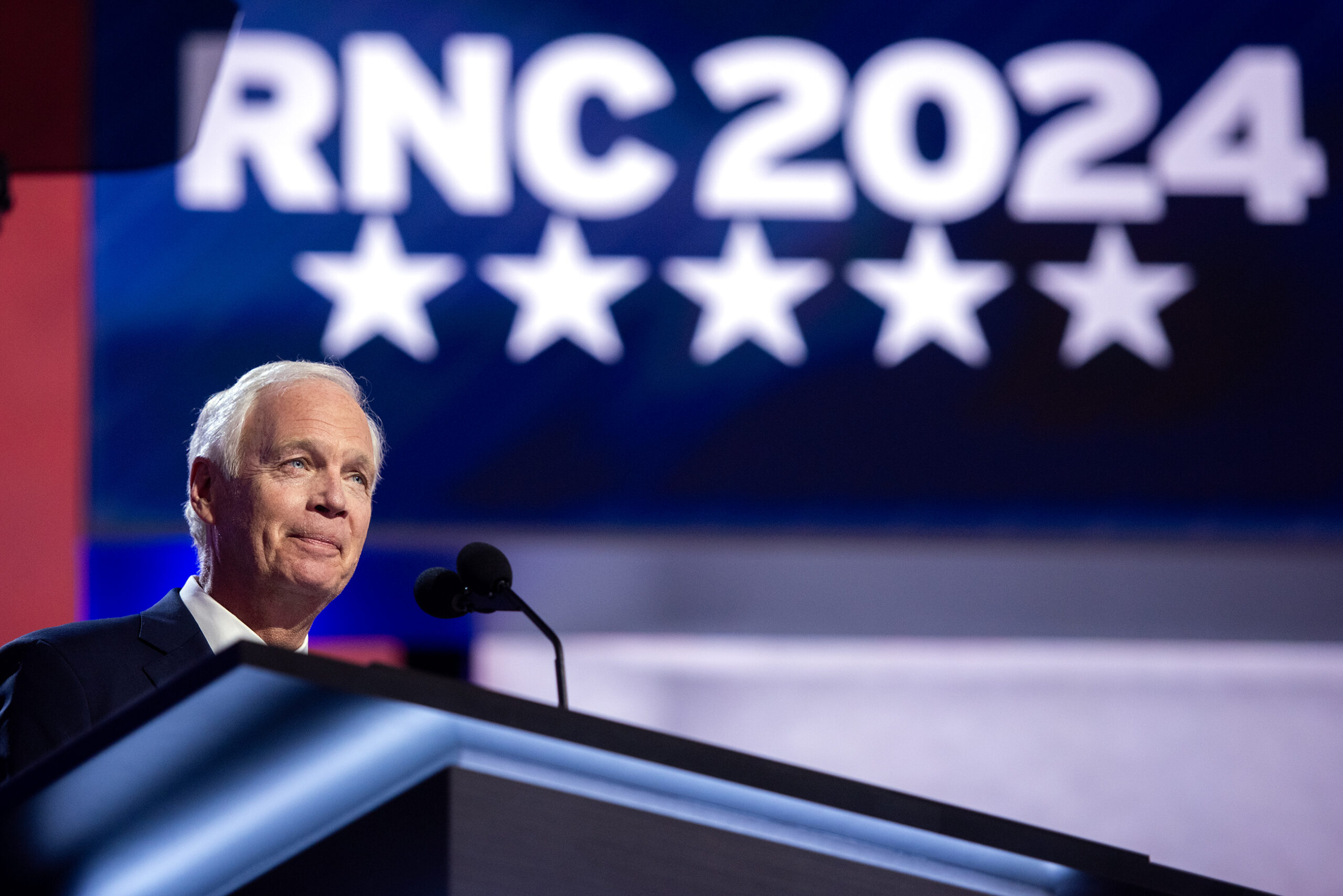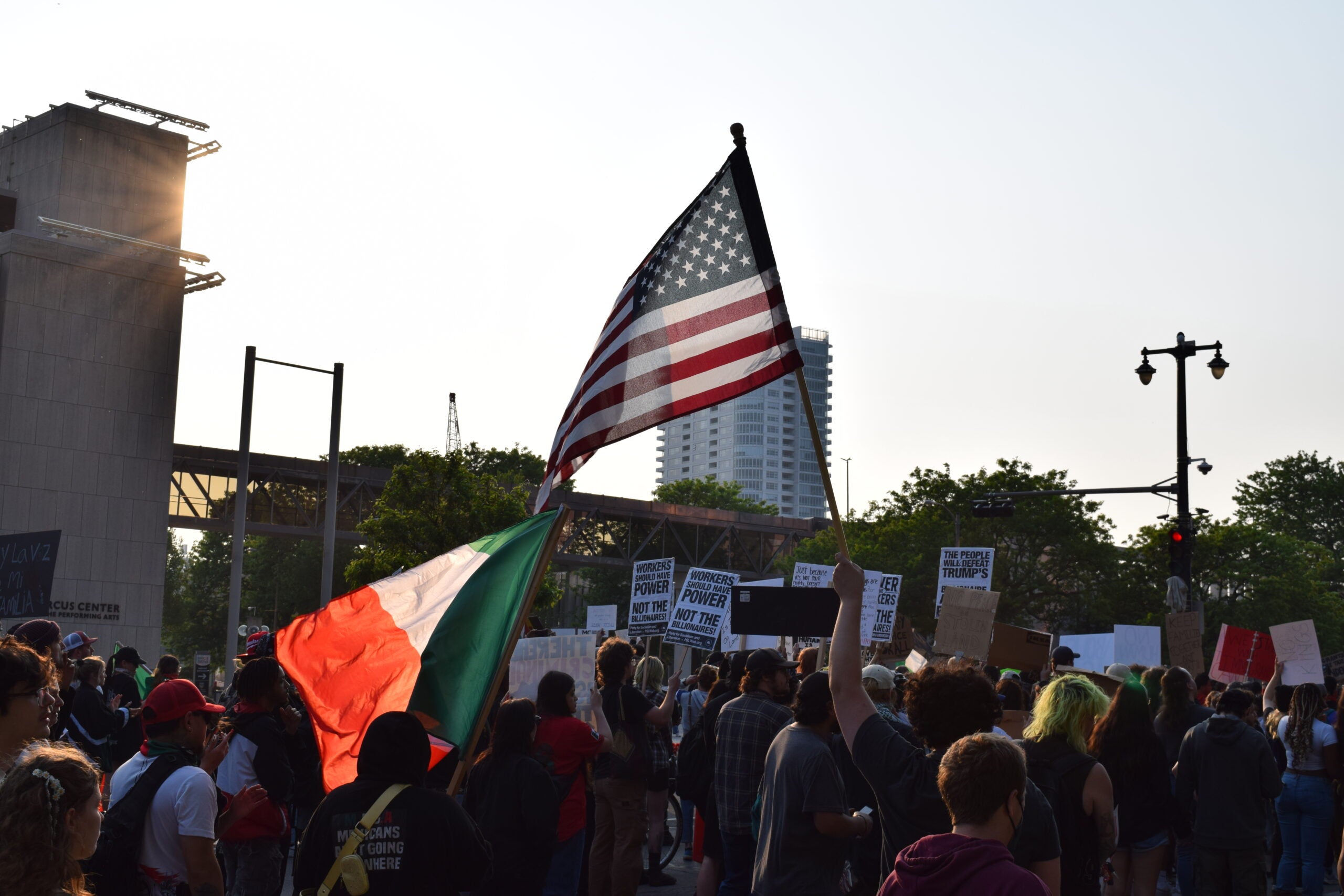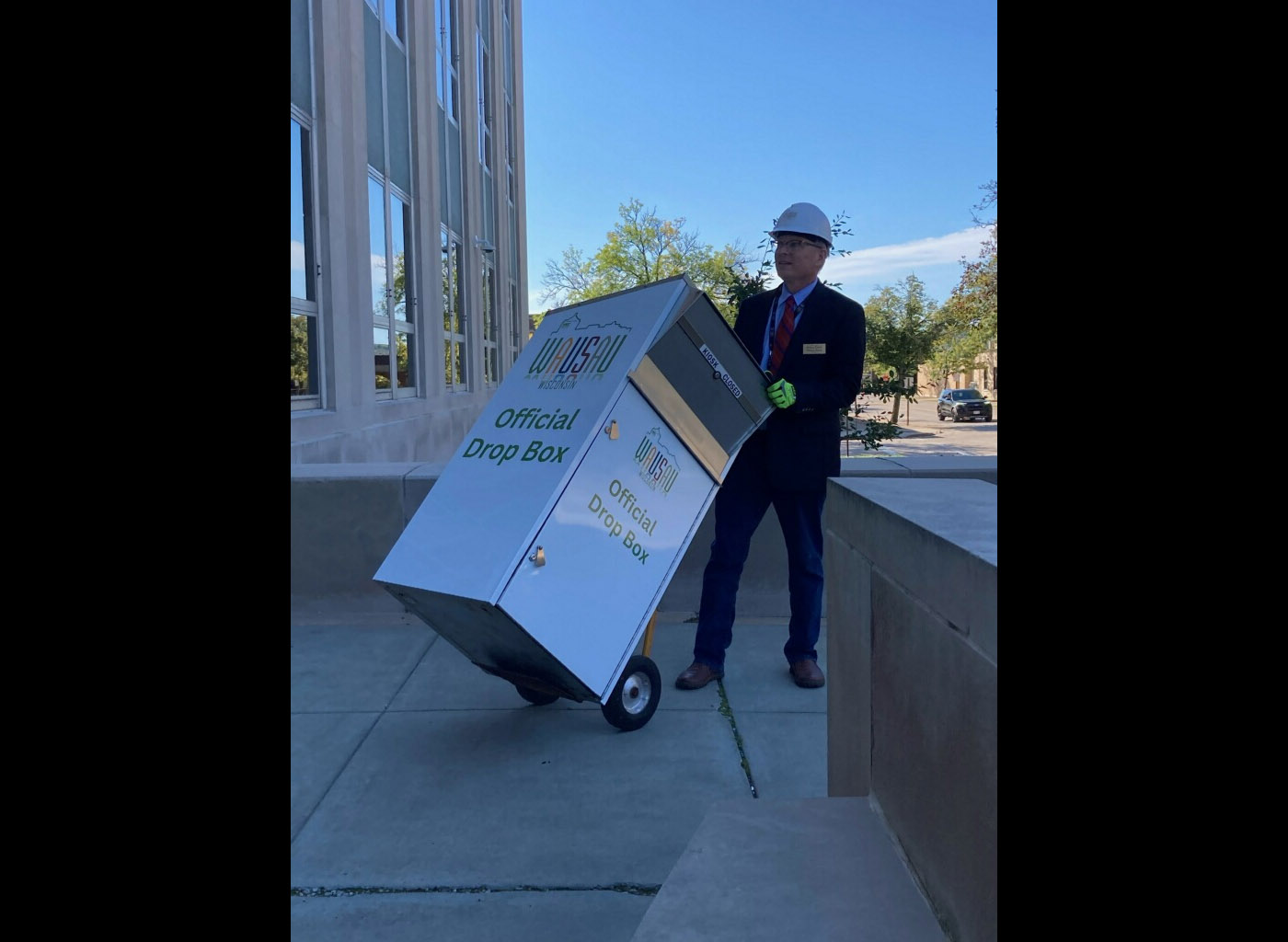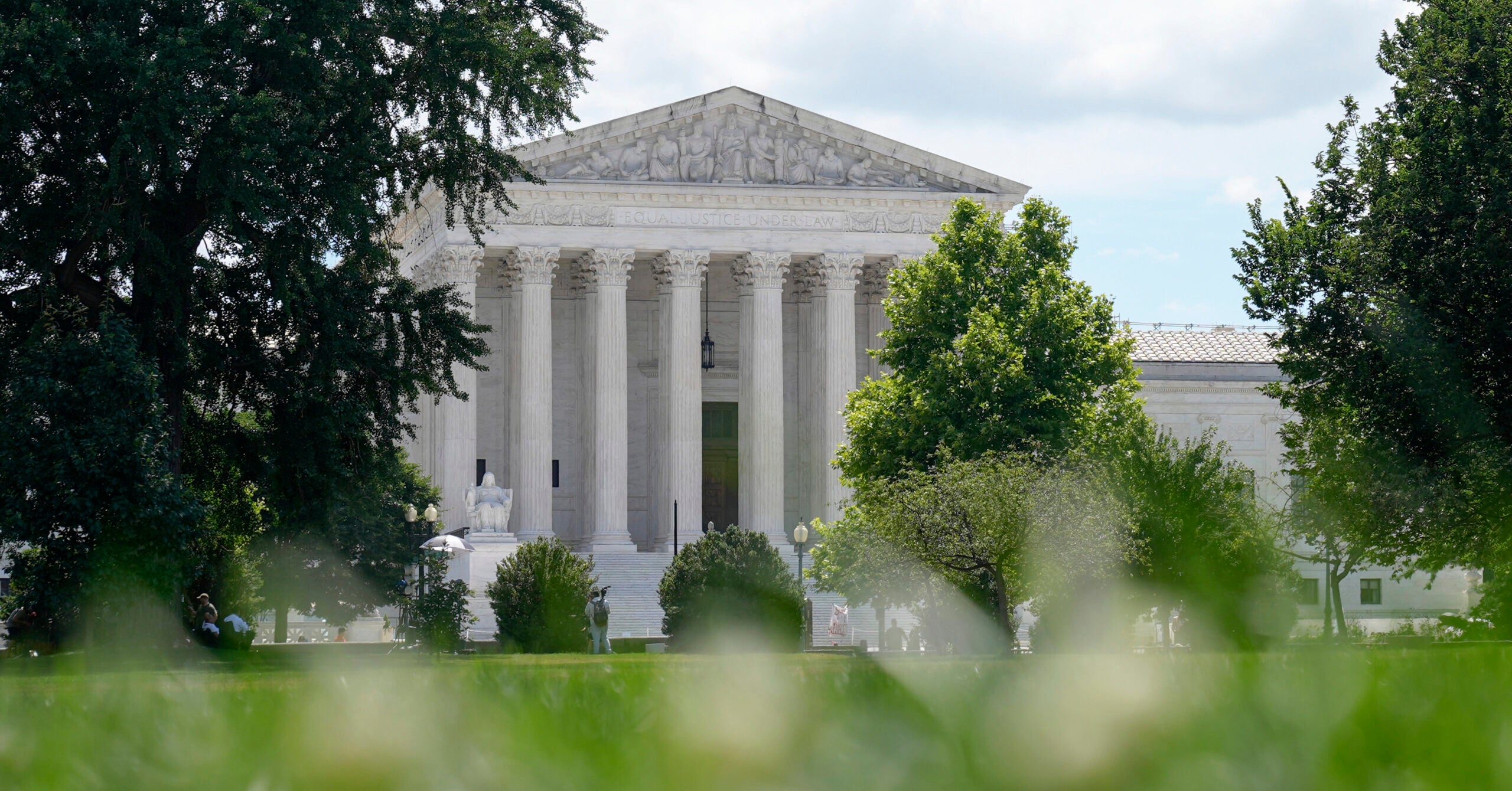Two lawsuits seeking to kick former President Donald Trump off Wisconsin ballots were dismissed this week in the wake of a ruling from the U.S. Supreme Court.
On Monday, justices rejected an attempt to disqualify Trump from the Colorado primary ballot because of his role in the Jan. 6 insurrection. The unanimous Supreme Court decision came a day before Super Tuesday primary elections happening in Colorado and other states.
It also ended similar attempts to knock Trump off the ballot in Wisconsin, prompting Dane County judges to dismiss two lawsuits Monday.
News with a little more humanity
WPR’s “Wisconsin Today” newsletter keeps you connected to the state you love without feeling overwhelmed. No paywall. No agenda. No corporate filter.
One suit was filed in January by Kirk Bangstad, a liberal activist and owner of Minocqua Brewing Company. The other was filed in August by John Anthony Castro, a Texas resident and longshot Republican candidate who’s filed similar challenges across the country.
The legal arguments for disqualifying Trump pointed to Section 3 of the U.S. Constitution’s 14th Amendment. It was added after the Civil War and it bars anyone who’s previously taken the oath of office from holding public office if they’ve engaged in “insurrection or rebellion” against the United States.
But this week, a majority of justices concluded that Congress, rather than the states, is responsible for enforcing that provision against federal officeholders and candidates.
Wisconsin’s presidential primary is April 2. Trump is one of is one of six Republicans who will appear on Wisconsin’s ballot along with President Joe Biden and Minnesota U.S. Rep. Dean Phillips for Democrats.
University of Wisconsin Law Professor Howard Schweber noted that while the consequences of the high court ruling for Wisconsin were straightforward, the decision itself “was not straightforward at all.”
Although the justices were unanimous in concluding that states can’t enforce the insurrection provision, they differed on how far their ruling should go.
Most of the justices agreed that enforcement authority lies with Congress, but Schweber said the majority opinion leaves ambiguity about exactly how that could work.
“Some people read this to say Congress can act but only by enacting legislation and only a certain kind,” Schweber said. “Other people read it less restrictively and say Congress can act, and one of the ways Congress can act is by enacting legislation. And again, if it does so, the legislation has to be a very specific kind.”
If the stricter interpretation holds, Schweber says the clause could only be enforced if a law is passed by the U.S. House and Senate, signed by the sitting president and upheld by the courts. That, Schweber argues, will almost make the provision powerless.
“The big remaining question is there any way that the insurrection clause still has any function whatsoever?” Schweber said. ‘”Or has this court effectively written it out of existence?”
Wisconsin Public Radio, © Copyright 2025, Board of Regents of the University of Wisconsin System and Wisconsin Educational Communications Board.

